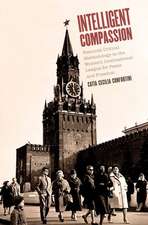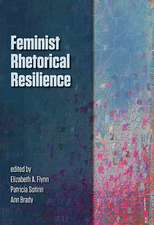Feminism and Black Activism in Contemporary America: An Ideological Assessment: Contributions to the Study of Science Fiction & Fantasy, cartea 106
Autor Irvin D. Solomon, Solomonen Limba Engleză Hardback – 31 iul 1989
Feminism and Black Activism in Contemporary America, by Irving D. Solomon, is an interesting attempt to analyze two of the most important sustained social movements of the mid-twentieth century. Solomon's politics are feminist, and he is sympathetic to both movements. . . . Solomon isolates three schools, legal, cultural, and economic, in both movements. After an introduction explaining his methodology, he gives a history of both black activism and contemporary feminism and then considers each school, finishing with an epilogue. Solomon is best in the extended discussions of his schools of feminism. Solomon's explication of the rich independent history of the legal branch has not been done before in such a lucid and condensed way. . . . T]his is the only book currently available that looks at the black activist and feminist movements together. Solomon makes a defensible case for his analysis, and he sustains his argument with a great deal of useful information, analyzing classic' women's liberation texts, searching out archival material, and conducting some very interesting interviews. "Journal of American History"
Though the race and gender protest movements that began in the 1950s are often linked in our minds, the connections between them have not been studied systematically. In the first thorough analysis of the common ground between these movements, Solomon explores the ideological and behavioral relationships, the roots, shared goals and responses, parallel strategies, and common obstacles that link contemporary feminism and black activism. Focusing particularly on the dynamic mid-twentieth-century period of protest, he examines the various legal, cultural, and economic orientations that have characterized these movements and given them special force.
Solomon first reviews the long protest history of black activism and feminism in the United States. He then discusses three different ideological stances that have characterized segments of both movements. The first, described as the legal approach, seeks a more egalitarian society, with full social integration through traditional, legal, and electoral channels. The cultural-nationalist view, which sees little possibility for meaningful reconciliation, stresses radical and unorthodox alternatives that strengthen self-definition and power apart from the dominant group. In practice, these two approaches may overlap. The third protest orientation is based on Marxist-socialist economic principles, particularly the contemporary neo-Marxist view that looks to a total social upheaval to change the cultural fiber of society as well as its economic institutions. Directed to both the academic and general reader, this book will be a useful resource for those with an interest in black studies, women's studies, and contemporary politics, as well as related areas in sociology, political science, and history.
Din seria Contributions to the Study of Science Fiction & Fantasy
- 33%
 Preț: 320.87 lei
Preț: 320.87 lei - 38%
 Preț: 439.17 lei
Preț: 439.17 lei - 52%
 Preț: 251.27 lei
Preț: 251.27 lei - 35%
 Preț: 364.06 lei
Preț: 364.06 lei - 23%
 Preț: 560.69 lei
Preț: 560.69 lei - 38%
 Preț: 437.24 lei
Preț: 437.24 lei - 28%
 Preț: 462.70 lei
Preț: 462.70 lei - 24%
 Preț: 363.46 lei
Preț: 363.46 lei - 24%
 Preț: 462.03 lei
Preț: 462.03 lei - 52%
 Preț: 251.63 lei
Preț: 251.63 lei - 38%
 Preț: 438.07 lei
Preț: 438.07 lei - 38%
 Preț: 437.91 lei
Preț: 437.91 lei - 39%
 Preț: 432.59 lei
Preț: 432.59 lei - 26%
 Preț: 354.00 lei
Preț: 354.00 lei - 31%
 Preț: 285.66 lei
Preț: 285.66 lei - 38%
 Preț: 345.07 lei
Preț: 345.07 lei - 38%
 Preț: 438.41 lei
Preț: 438.41 lei - 38%
 Preț: 345.58 lei
Preț: 345.58 lei - 24%
 Preț: 459.75 lei
Preț: 459.75 lei - 38%
 Preț: 343.71 lei
Preț: 343.71 lei - 24%
 Preț: 459.68 lei
Preț: 459.68 lei - 27%
 Preț: 440.61 lei
Preț: 440.61 lei - 34%
 Preț: 319.38 lei
Preț: 319.38 lei - 38%
 Preț: 438.17 lei
Preț: 438.17 lei - 24%
 Preț: 361.36 lei
Preț: 361.36 lei - 26%
 Preț: 533.72 lei
Preț: 533.72 lei - 38%
 Preț: 437.91 lei
Preț: 437.91 lei - 55%
 Preț: 149.52 lei
Preț: 149.52 lei - 42%
 Preț: 252.95 lei
Preț: 252.95 lei - 28%
 Preț: 435.37 lei
Preț: 435.37 lei - 33%
 Preț: 320.42 lei
Preț: 320.42 lei - 33%
 Preț: 319.75 lei
Preț: 319.75 lei - 27%
 Preț: 441.71 lei
Preț: 441.71 lei - 38%
 Preț: 345.74 lei
Preț: 345.74 lei - 38%
 Preț: 437.15 lei
Preț: 437.15 lei - 39%
 Preț: 433.36 lei
Preț: 433.36 lei - 38%
 Preț: 440.11 lei
Preț: 440.11 lei - 18%
 Preț: 320.60 lei
Preț: 320.60 lei - 38%
 Preț: 343.71 lei
Preț: 343.71 lei - 27%
 Preț: 346.42 lei
Preț: 346.42 lei
Preț: 346.00 lei
Preț vechi: 556.46 lei
-38% Nou
66.22€ • 68.87$ • 54.66£
Carte tipărită la comandă
Livrare economică 14-28 aprilie
Specificații
ISBN-10: 0313262047
Pagini: 200
Dimensiuni: 156 x 234 x 13 mm
Greutate: 0.46 kg
Editura: Greenwood Press
Seria Contributions to the Study of Science Fiction & Fantasy
Descriere
Though the race and gender protest movements that began in the 1950s are often linked in our minds, the connections between them have not been studied systematically. In the first thorough analysis of the common ground between these movements, Solomon explores the ideological and behavioral relationships, the roots, shared goals and responses, parallel strategies, and common obstacles that link contemporary feminism and black activism. Focusing particularly on the dynamic mid-twentieth-century period of protest, he examines the various legal, cultural, and economic orientations that have characterized these movements and given them special force.
Solomon first reviews the long protest history of black activism and feminism in the United States. He then discusses three different ideological stances that have characterized segments of both movements. The first, described as the legal approach, seeks a more egalitarian society, with full social integration through traditional, legal, and electoral channels. The cultural-nationalist view, which sees little possibility for meaningful reconciliation, stresses radical and unorthodox alternatives that strengthen self-definition and power apart from the dominant group. In practice, these two approaches may overlap. The third protest orientation is based on Marxist-socialist economic principles, particularly the contemporary neo-Marxist view that looks to a total social upheaval to change the cultural fiber of society as well as its economic institutions. Directed to both the academic and general reader, this book will be a useful resource for those with an interest in black studies, women's studies, and contemporary politics, as well as related areas in sociology, political science, and history.
Notă biografică
Irvin D. Solomon teaches honors history and Third World studies courses at Edison Community College in Fort Myers, Florida. He has taught extensively at both the undergraduate and graduate levels, holds a PhD with concentrations in Afro-American history and the history of women in America.















